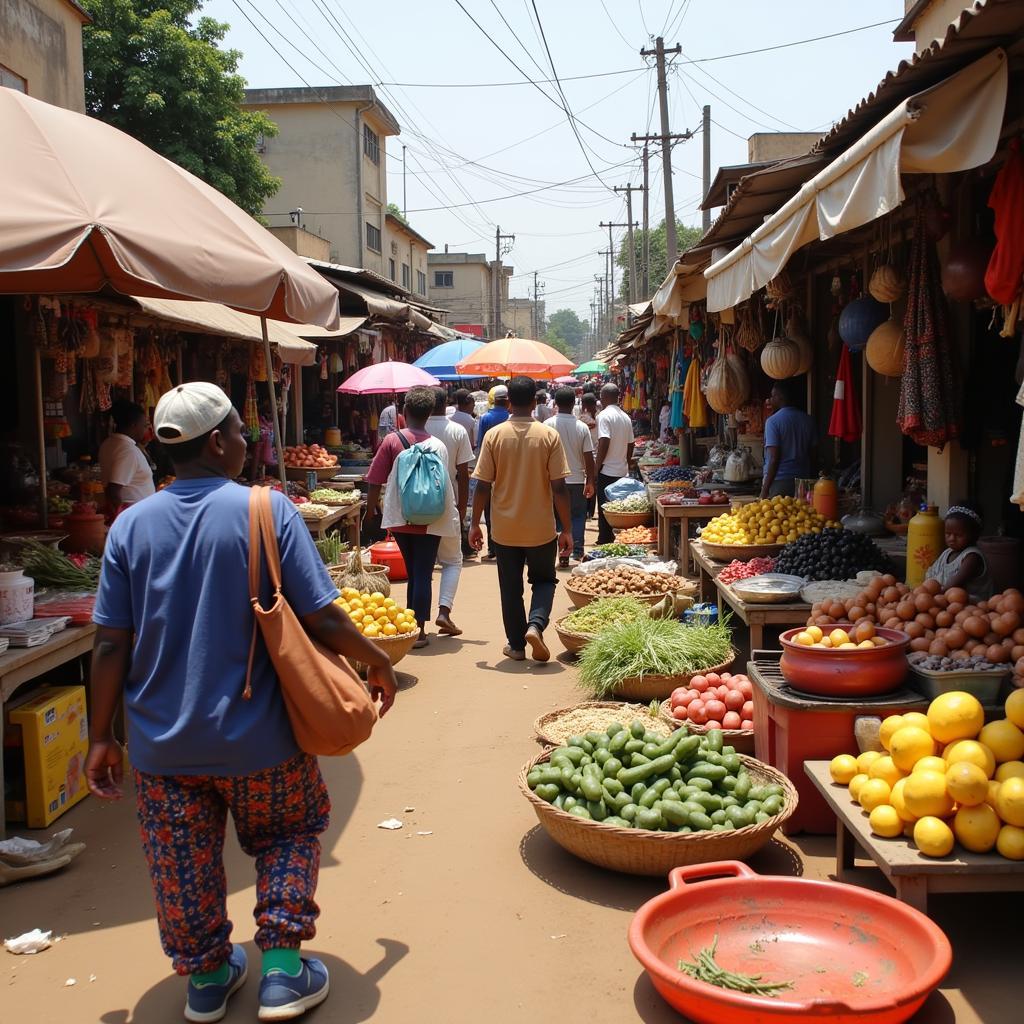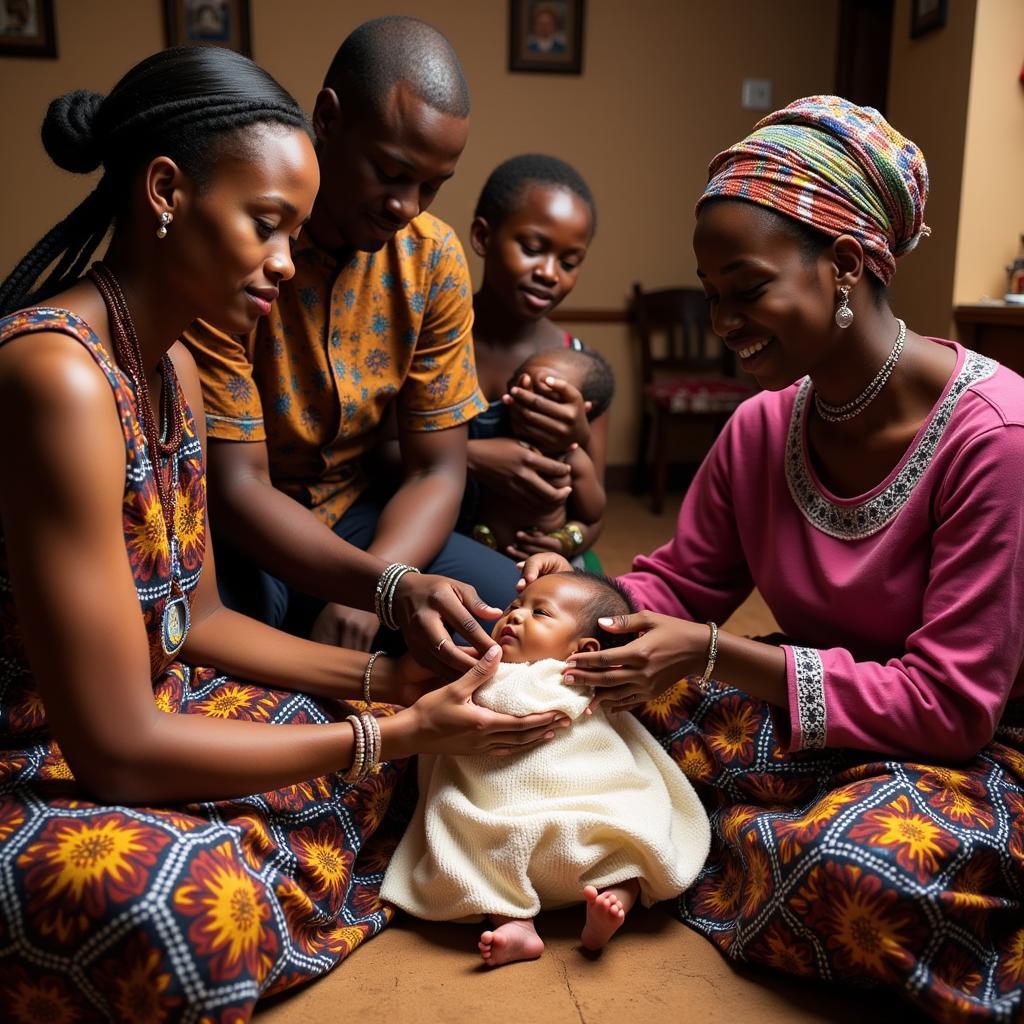Exploring Abuja: The Heart of Modern Nigeria
Nestled in the heart of Nigeria lies Abuja, a city as vibrant and diverse as the nation it represents. Established in the 1980s, Abuja replaced Lagos as the capital city in 1991, marking a pivotal moment in Nigeria’s history. This bustling metropolis, known for its meticulously planned layout and modern architecture, offers a unique glimpse into contemporary African urban life.
A Capital Forged from Vision
Unlike many African capitals that evolved organically over time, Abuja was meticulously planned from the ground up. The desire for a centrally located capital, free from ethnic and religious tensions that plagued Lagos, led to the birth of Abuja. Designed to reflect a unified and forward-looking Nigeria, Abuja boasts wide boulevards, expansive green spaces, and impressive government buildings.
Landmarks and Legacy
The city’s landscape is punctuated by iconic landmarks that speak to Nigeria’s rich history and aspirations. The National Mosque, with its gleaming golden dome, stands as a symbol of the country’s prominent Muslim population. Juxtaposed against this is the National Christian Centre, an architectural marvel that reflects the diversity of faith within the nation. The National Assembly Complex, a testament to Nigeria’s democratic ideals, houses the country’s legislative body.
 National Assembly Complex, Abuja
National Assembly Complex, Abuja
A Cultural Tapestry
Beyond its impressive infrastructure, Abuja pulsates with a vibrant cultural scene. The city is home to numerous art galleries showcasing the works of both established and up-and-coming Nigerian artists. Traditional dance performances, music festivals, and theatrical productions provide a window into the rich cultural heritage of Nigeria’s diverse ethnic groups.
A Culinary Journey
Food lovers will find themselves spoilt for choice in Abuja. From bustling street food markets offering local delicacies like suya (grilled meat skewers) and puff puff (fried dough balls) to upscale restaurants serving international cuisine, Abuja caters to every palate.
Abuja: A City on the Rise
Abuja is not without its challenges. Like many rapidly growing cities, it grapples with issues of infrastructure development, traffic congestion, and economic inequality. However, the spirit of innovation and progress is palpable in Abuja. The city is quickly becoming a hub for technology, finance, and entrepreneurship, attracting investors and young talent from across the continent.
 Abuja Street Market Vendors
Abuja Street Market Vendors
“Abuja is a city that embodies the spirit of a nation on the move,” says Amina Abubakar, a prominent Nigerian architect involved in several urban development projects in Abuja. “It’s a city where tradition meets modernity, and where dreams are given the space to take flight.”
As the sun sets over Abuja, casting long shadows over its impressive skyline, it’s clear that this young capital city is poised to play an increasingly important role on the African stage. It’s a city that beckons exploration, offering a glimpse into the heart of a nation brimming with potential.
FAQs about Abuja
1. What is the best time of year to visit Abuja?
The best time to visit Abuja is during the dry season, which runs from October to April. The weather is typically sunny and dry during these months, making it ideal for exploring the city.
2. How do I get around Abuja?
Taxis and ride-hailing services are readily available in Abuja. The city also has a public bus system, though it can be crowded.
3. Is Abuja a safe city for tourists?
Like any major city, Abuja has areas that are safer than others. It’s always advisable to exercise caution, especially at night, and avoid displaying large amounts of cash.
4. What currency is used in Abuja?
The currency used in Abuja, and throughout Nigeria, is the Nigerian Naira (NGN).
5. What language is spoken in Abuja?
English is the official language of Nigeria, and it’s widely spoken in Abuja. However, you’ll also hear a variety of other languages spoken, reflecting the country’s linguistic diversity.
For those interested in exploring more about Africa, you might find these articles helpful:
- African countries with their capitals
- African continent countries and their capitals
- African countries and capitals list alphabetical
If you need further information, feel free to contact us:
- Phone: +255768904061
- Email: kaka.mag@gmail.com
- Address: Mbarali DC Mawindi, Kangaga, Tanzania.
Our customer service team is available 24/7 to assist you.

